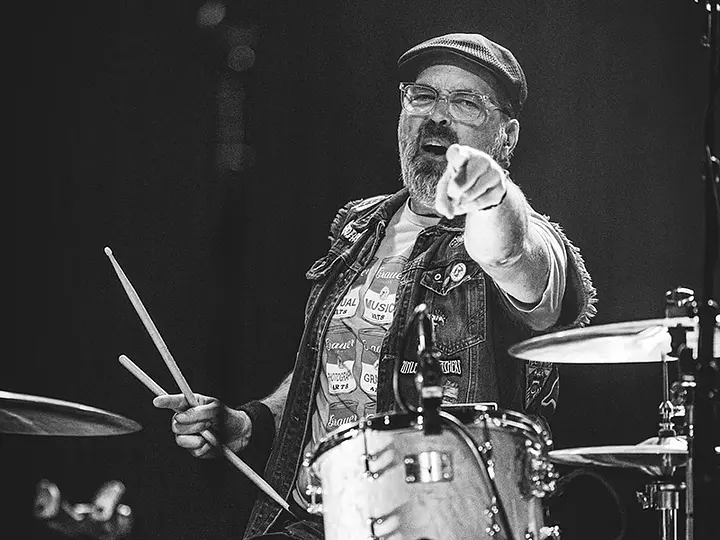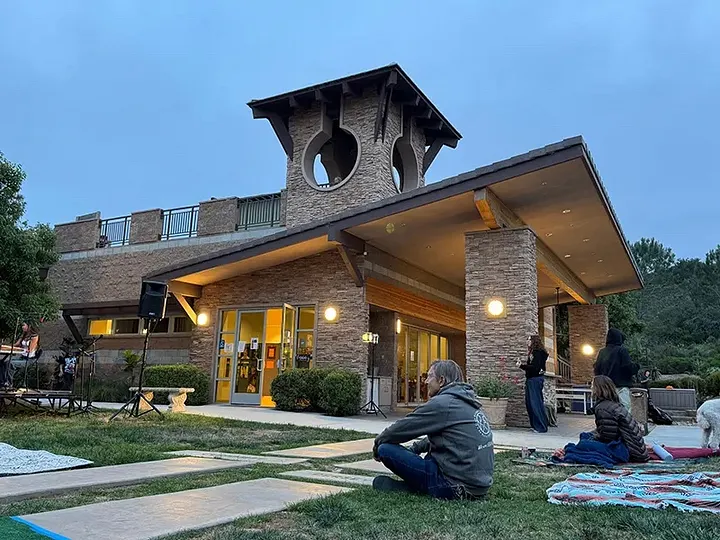I spent thirteen years in universities, across three different universities, spending my bottom dollar in pursuit of one thing: teaching as a craft. Not a diploma. Not prestige. Craft. The art and discipline of teaching and learning — not just standing at the front of a classroom, but reaching learners on an impactful level, listening deeply, and building something living in the space between us.
I never stopped.
I’ve continued to seek out new mentors as I seek expertise, and to walk into workshops as though I am the least informed person in the room. I immerse myself in research that challenges me, not just affirms what I already know. I read books whose footnotes outnumber their paragraphs. I observe. I revise. I question. I wonder. I pursue scholarship. Evidently, I may be obsolete.
I saw this this week, from the Acton Academy network — a franchise of small home pods and microschools gaining rapid momentum — which captures this spirit in its motto: “We are all learners at Acton; there are no experts among us.” I understand the appeal. The phrase signals all the trust in students, freedom from top-down instruction, and lovely sense of humility I’ve aspired to for myself and all the teachers I’ve developed. I believe in those things and try to live them.
But I also wonder if we are confusing egalitarianism with equivalency: none of us teachers can be experts? In education and around the country today, there’s a growing sentiment that says we don’t need (or believe) experts.
I wouldn’t ask a novice to perform surgery or service my Ford because “everyone’s a learner.” I question the wisdom of discarding the role of expertise in education. Passion matters. Socratic listening to our students matters. But so do preparation and scholarship. So does deep training and discipline. So does the humbling, time-consuming, awe-inducing work of developing real mastery in any area where we teach.
I’ve heard people say they didn’t go to college — they went to the university of the street — and imply it’s all the same. I went to that university too. I still go there. Neither one is “better” or more valuable than the other. But no, they’re not the same. Or maybe you think schooling is not as good or real as the street, and that’s okay with me, but the two are not the same. There’s no substitute for expert education in a skilled trade school, a university, a research lab, or a school of practice. I also believe that expanding access to expertise in great teaching — so more people from all backgrounds can reach those expert levels — is one of the most important social goals of our time. There can be no greater role for expertise than for it to be shared generously. That’s what real teachers do.
And I understand something else, too: that many people are called to act as experts on their own when they find their schools, institutions, or teachers have let them down. They take matters into their own hands and set foot on the road to expertise, their way — not because they seek status, but: Because no one else was doing what needed to be done. That may be one of the all-time great reasons to aspire towards teaching expertise.
The Anti-Expert
The anti-expert trend didn’t begin in schools. It’s been building for years — politically, culturally, and economically. College tuition started soaring out of reach for many families around the millennium. Maybe related to this, in some corners, higher education is viewed not as a path to enlightenment, but as a symbol of elitism. During the pandemic, public trust in science was shaken by rapidly shifting guidance and the suppression of dissenting voices. Social media platforms like Facebook and Twitter, meanwhile, blurred the line between informed, researched insight and viral opinion. In the chaos, the word “expert” itself became suspect, dismissed, doubted, and sometimes vilified.
Even economically, the old faith in higher education as a public good is fading. For generations, colleges anchored local economies, with students fueling jobs, housing, and spending. But that boom has ended. According to Brookings Metro (covered recently in the Wall Street Journal), from 2011 to 2023, three-quarters of U.S. metropolitan areas reliant on higher education grew more slowly than the nation as a whole — a reversal from the decade prior. College towns that were once thriving are now facing contraction and schools have shut down. The downturn reflects more than shifting demographics — it reveals a country less convinced that formal learning leads to real opportunity.

This isn’t new. Exactly a hundred years ago this summer, in 1925, a Tennessee high school teacher named John Scopes was put on trial for teaching evolution in defiance of a new state law. The trial became a national spectacle — a battle between modern science and biblical literalism. Scopes lost in court, but the “real” story wasn’t about courtroom outcomes. It was about our culture wrestling with who gets to define truth: the trained expert or the impassioned preacher. The echoes of that trial are still with us. The same suspicion of formal knowledge, the same desire to bypass complexity with certainty, continues to shape our politics and our schools today.
Historian Daniel Immerwahr captured this shift and inspired this column in a recent New Yorker piece about Robert F. Kennedy, Jr. “Although many of R.F.K., Jr.’s beliefs are outrageous,” he wrote, “I’ve come to see him as having played an important social role: that of the skeptic.” Immerwahr worries that our failure to meaningfully engage skeptics — particularly during COVID — has fueled a backlash from the university of the street. So today, a key role of expert teachers is to be cautious, to listen and not “pull rank.”
But what if we are eroding the idea of expertise? Teaching expertise, when handled well held, is not a license to dominate. It is a commitment to immerse, to sacrifice, and to serve. To listen better than anyone else. This is what Socrates taught, and a core founding principle of The Grauer School.
During the 2008 presidential campaign, then–vice presidential candidate Sarah Palin told supporters, “We believe that the best of America is in the small towns… with the hardworking, very patriotic, real Americans.” The implication was that realness and ruralness — not credentials — were the marks of moral authority. But does that mean our scholars and subject-area experts are to be discredited? Are those who have spent their lives seeking understanding and scholastic knowledge no longer part of what makes America great?
Are Teachers Experts?
Some political figures have made an emerging stance toward expertise unmistakably clear. In a 2021 address, then–Senate candidate J.D. Vance declared, “The professors are the enemy.” Whatever merit there might be to this statement, we can only ask: what are we who are professors supposed to do? If you had worked years to gain your professorship, would your most righteous move be to head out to the country and work the fields like Tolstoy?
I want to offer something else here. Ninety percent of classroom teachers in the U.S. hold a regular or standard state teaching certificate or advanced professional certificate. In contrast, the landscape for fast emerging microschool and home learning pod educators is more varied. A 2024 report from the National Microschooling Center found that among currently operating microschool founders:
• 38% were currently licensed educators.
• 33% held educator licenses that were not currently active.
This is not criticism, just data to bear — many of these new educators will continue in their educations and pursuit of professional-level certification and expertise (not that certification and expertise are always the same). In fact, expertise is rising fast in this evolving space: 86% of microschool founders now have a background in education, up from 71% just last year.

I remember a moment years ago, just after founding our school, The Grauer School, when a student came to me in crisis. They didn’t need a lesson plan or, really, expertise — they needed guidance, stability, someone with experience to see around corners they couldn’t yet see. I mainly listened. Then, because I’d spent years studying areas like adolescent development, trauma, and educational counseling, I knew what not to say. I knew when to wait. Expertise at that point felt like knowing what not to say. That student stayed and graduated. And they still write to me. This scenario has repeated itself in every imaginable iteration for every great teacher I know as they attempt expertise, sometimes saving lives.
Those moments don’t come from intuition alone, and they are not haphazardly acquired. They come from preparation and sometimes hyperfocus. They are honed skills of the teaching practice.
I think the important thing about the kind of expert we hope to honor is that students choose to recognize that expertise. They seek it, defer to it, and pursue it — on their own volition. That, to me, is what democratic education looks like. It’s not about authority imposed from above, but wisdom earned and recognized by those who are ready to grow into it. I know this model to be at some risk right now.
I love questioning systems, including schools. And yes, let’s listen to fresh voices. Let’s give learners the reins where they can safely take them, every chance we get. Let’s keep aspiring to lifetimes of learning, even if we’ve already achieved expertise. Expert and scholarly teachers are not inherently more smart — they are just different smart, and it takes all kinds.
Some of us have spent lifetimes studying a scholarly path, often sacrificing it all for that — not to pull rank, but to help others walk it better. Sometimes there really are experts in the room.
References
Data from this report is from “American Microschools: a Sector Analysis,” May 2025, Soifer and Soifer, National Microschools Center.
America’s College Towns Go From Boom to Bust, The Wall Street Journal, May 18, 2025, Konrad Putzier, Douglas Belkin, Anthony DeBarros.
Join the Small Schools Movement!
Would you like your organization or small learning community showcased in our member spotlight? If you are not yet a member of the Small Schools Coalition, we welcome you to become a friend free of charge.
If you are already a member, contact us to discuss how we can give you the complimentary platform to show the entire world what makes your small school special!


Recent Comments